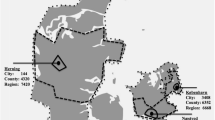Abstract
Change and variation, while inherent to language, might be seen as running counter to human communicative needs. However, variation also gives language the power to convey reliable indexical information about the speaker. This has been argued to play a significant role in allowing the establishment of large communities based on cooperative exchange (M. Enquist and O. Leimar 1993, The evolution of cooperation in mobile organisms. Animal Behaviour 45: 747–757; R. I. M. Dunbar 1996, Grooming, Gossip and the Evolution of Language. London: Faber and Faber), although there has been little experimental investigation of the hypothesis. Here I present a preliminary study intended to help fill this gap. Participants played an online team game in which they negotiated anonymously for resources using an artificial language. Players succeeded in using linguistic cues to distinguish between their teammates and their opponents, and displayed between-team variation in the use of the language.
Similar content being viewed by others
References
Axelrod R (1990) The Evolution of Co-operation. London: Penguin Books.
Boyd R, Gintis H, Bowles S, Richerson PJ, eds (2003) The evolution of altruistic punishment. Proceedings of the National Academy of Sciences USA 100: 3532–3535.
Christiansen MH, Chater N (2007) Language as shaped by the brain. http://www.isrl.uiuc.edu/∼amag/langev/paper/christiansen07languageBrain.html
Cornish H (2006) Iterated learning with human subjects: An empirical framework for the emergence and cultural transmission of language. Unpublished master’s thesis, University of Edinburgh, UK. http://www.ling.ed.ac.uk/lec/LEC/Research.html
Croft W (2000) Explaining Language Change: An Evolutionary Approach. Harlow, UK: Longman.
Cruttenden A (1986) Intonation. Cambridge: Cambridge University Press.
Deacon TW (1997/1998) The Symbolic Species: The Co-evolution of Language and the Brain. New York: Norton.
Dediu D, Ladd DR (2007) Linguistic tone is related to the population frequency of the adaptive haplogroups of two brain size genes, ASPM and Microcephalin. Proceedings of the National Academy of Sciences USA 104: 10944–10949.
Dunbar RIM (1996) Grooming, Gossip and the Evolution of Language. London: Faber and Faber.
Enquist M, Leimar O (1993) The evolution of cooperation in mobile organisms. Animal Behaviour 45: 747–757.
Evans B (2004) The role of social network in the acquisition of local dialect norms by Appalachian immigrants in Ypsilanti, Michigan. Language Variation and Change 16: 153–167.
Hagen LK (2008) The bilingual brain: Human evolution and second language acquisition. Evolutionary Psychology 6: 43–63.
Harrington J (2006) An acoustic analysis of ‘happy tensing’ in the Queen’s Christmas broadcasts. Journal of Phonetics 34: 439–457.
Kirby S (2000) Syntax without natural selection: How compositionality emerges from vocabulary in a population of learners. In: The Evolutionary Emergence of Language: Social Function and the Origins of Linguistic Form (Knight C, ed), 303–323. Cambridge: Cambridge University Press.
Kirby S, Hurford J (2002) The emergence of linguistic structure: An overview of the iterated learning model. In: Simulating the Evolution of Language (Cangelosi A, Parisi D, eds), 121–148. London: Springer.
Labov W (1963) The social motivation of a sound change. Word 19: 273–309.
Labov W (1990) The intersection of sex and social class in the course of linguistic change. Language Variation and Change 2: 205–254.
Labov W (2001) Principles of Linguistic Change, Vol. 2: Social Factors. Malden, MA: Blackwell.
Lieberman E, Michel J, Jackson J, Tang T, Nowak MA (2007) Quantifying the evolutionary dynamics of language. Nature 449: 713–716.
Livingstone D (2002) The evolution of dialect diversity. In: Simulating the Evolution of Language (Cangelosi A, Parisi D, eds), 99–117. London: Springer.
Livingstone D, Fyfe C (1999) Modelling the evolution of linguistic diversity. In: Advances in Artificial Life. Proceedings of the 5th European Conference in Artificial Life, ECAL’ 99, Lausanne, Switzerland (Floreano D, Nicoud J-D, Mondada F, eds), 704–708. London: Springer.
Nettle D (1999) Linguistic Diversity. Oxford: Oxford University Press.
Nettle D, Dunbar RIM (1997) Social markers and the evolution of cooperative exchange. Current Anthropology 38: 93–99.
Pagel M, Atkinson QD, Meade A (2007) Frequency of word-use predicts rates of lexical evolution throughout Indo-European history. Nature 449: 717–721.
Quinn M (2001) Evolving communication without dedicated communication channels. In: Advances in Artificial Life. 6th European Conference on Artificial Life, ECAL 2001 (Kelemen J, Sosik P, eds), 357–366. London: Springer.
Steels L (2000) Language as a complex adaptive system. In: Proceedings of PPSN VI (Schoenauer M, ed), 17–26. Berlin: Springer.
Tooby J, Cosmides L (1990) On the universality and the uniqueness of the individual: The role of genetics and personality. Journal of Personality 27: 17–67.
Trudgill P (1972) Sex, covert prestige and linguistic change in the urban British English of Norwich. Language in Society 1: 179–196.
Weinreich U, Labov W, Herzog M (1968) Empirical foundations for a theory of language change. In: Directions for Historical Linguistics: A Symposium (Lehmann WP, ed), 95–195. Austin: University of Texas Press.
Worden RP (1995) A speed limit for evolution. Journal of Theoretical Biology 176: 127–152.
Wray A, Grace GW (2007) The consequences of talking to strangers: Evolutionary corollaries of influences on linguistic form. Lingua 117: 543–578.
Author information
Authors and Affiliations
Corresponding author
Rights and permissions
About this article
Cite this article
Roberts, G. Language and the Free-Rider Problem: An Experimental Paradigm. Biol Theory 3, 174–183 (2008). https://doi.org/10.1162/biot.2008.3.2.174
Received:
Accepted:
Published:
Issue Date:
DOI: https://doi.org/10.1162/biot.2008.3.2.174




